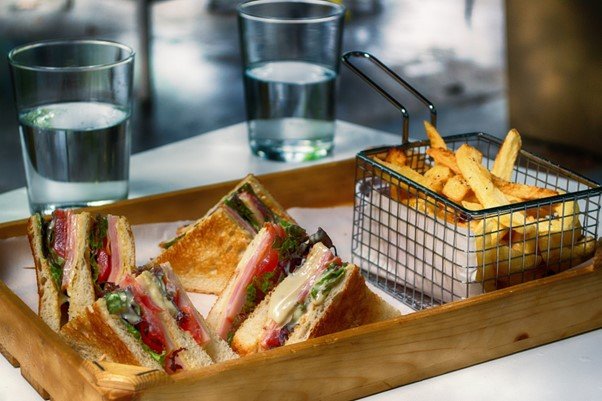5 Tips for Setting Up a Food Business in Edinburgh
Overcome the complexities of starting a food business in Edinburgh with our useful tips…
Starting a food business in Edinburgh can be a rewarding and fulfilling experience, but it also requires a significant amount of planning and hard work. From creating a business plan to securing funding and finding the perfect location, there are many steps involved in launching a successful food venture.
The food industry in Edinburgh has grown exponentially in recent years with many different cuisines entering the market. In addition to this, businesses that offer food on the go have also grown in popularity. What this means is that there is a lot of competition, but this doesn’t mean that there isn’t room for you.
While solicitors in Edinburgh can help with the legal side of things, we’ll be providing practical tips and insights to help aspiring entrepreneurs navigate the challenges and opportunities that come with this exciting and dynamic field.
1. Carry out Market Research Beforehand
Market research is an essential step when starting a food business. It allows entrepreneurs to gain a better understanding of their target market and the competitive landscape. By gathering and analysing data on consumer preferences, demographics, and spending habits, business owners can gain valuable insights into what types of products and services will be most successful in their chosen market.
This information can be used to guide decision-making around menu development, pricing, and marketing strategies, helping to increase the chances of success for the business.
Pop-up stalls are a great way to conduct market research for a food business. These temporary food stands or food trucks allow entrepreneurs to test their concepts and gather feedback from potential customers in a real-world setting.
Pop-up stalls also provide an opportunity to observe consumer behaviour and preferences first-hand. This can be a valuable source of information for adjusting and refining the business concept. Additionally, pop-up stalls can be a cost-effective way to build a following and create buzz for a new business, helping to generate interest and attract customers before the official launch.
It is important to note that market research is an ongoing process. Therefore, it's essential to continuously analyse and adjust the business concept according to customer feedback and market trends.
Pop-up stalls are a great way to test the waters and gather information. However, it's essential to keep in mind that they are not a substitute for a robust and well-conducted market research strategy.
2. Finding a Suitable Commercial Property
The location, size, and layout of the property can have a significant impact on the business's ability to attract and retain customers and profitability. Market research can play an important role in this process, by providing business owners with valuable information about consumer preferences and patterns, as well as the competitive landscape.
This information can help to guide decision-making around property selection. This allows entrepreneurs to identify the best locations for their business based on factors such as foot traffic, visibility, and accessibility.
For food businesses, it is important to find a property that is easily accessible, with good visibility and foot traffic. It is also crucial to consider the surrounding area and make sure it is the right demographic for the business. For example, if the business is targeting families, it would be beneficial to find a property near schools or parks.
Using market research data to determine the best location can help to ensure that the business is well-positioned to attract and retain customers.
A solicitor can assist with the buying process by providing legal advice and representation throughout the transaction. This can help to ensure that the process runs smoothly, and that the business owner's rights and interests are protected.
A solicitor can also help to review and negotiate the terms of the contract and ensure that the property is free of any issues or concerns. They can also assist with the legal process of transferring the property title and registering the business.
3. Speak with a Financial Advisor
There are many things to consider when starting a food business in Edinburgh. One of the main things you have to get right is tax because HMRC will expect you to pay the right taxes on time.
A financial advisor can be an invaluable resource for anyone looking to set up a food business in the UK. They can help to guide entrepreneurs through the complex and often challenging process of starting a business. As a result, they’ll provide expert advice and support in areas such as financial planning, investment, and risk management.
They can help to create a detailed plan that outlines the business's goals, strategies, and projected financials. This can help to ensure that the business has a solid foundation for success and is well-positioned to secure funding from investors or lenders.
Furthermore, a financial advisor can provide guidance on tax planning and compliance, this is particularly important for food businesses as they are subject to specific regulations and taxes.
They can help the business owner to understand and comply with the tax obligations and regulations that are specific to the food industry and minimise the tax liability of the business.
4. Hire a Solicitor to Assist with the Process
You will also have a lot to think about when it comes to the legalities of setting up a business. A Solicitor will play an important role in the setting up of a food business by providing legal advice and representation on a wide range of issues. Their expertise will also assist with the formation of the business, including the selection of the appropriate business structure and registering the business with the relevant authorities.
Using their knowledge, they can review and negotiate commercial contracts, such as leases and supplier agreements. This ensures that the business's rights and interests are protected. Additionally, a solicitor can help with the drafting and review of employment contracts, which is essential when hiring staff.
These contracts will include important information such as job responsibilities, compensation, benefits, and termination conditions, which will protect both the business and the employee. By working with a solicitor, food business owners can ensure that they are in compliance with all relevant laws and regulations, and that they have a solid legal foundation for their business.
5. Ensure Your Product is the Best it Can Be
You could have the catchiest business name and promise to be the best business around. However, what will really count is the product that you offer. Whether you are a bakery or a restaurant, you have to make sure that the food you serve hits the spot.
Focus on using the best ingredients, make it clear why your products are the best and let the taste do the talking. A solid marketing campaign can help but will only go so far. Those who use your food business will only recommend you if you deliver on quality.
Start Your Business the Right Way
Now you know that there is a lot to think about when starting a food business in Edinburgh. There is a lot to think about but with the right support, information and insights, you can give your business the best chance of success.
Please be advised that this article is for general informational purposes only, and should not be used as a substitute for advice from a trained legal professional. Be sure to consult a business lawyer/solicitor if you’re seeking advice on setting up a business. We are not liable for risks or issues associated with using or acting upon the information on this site.














